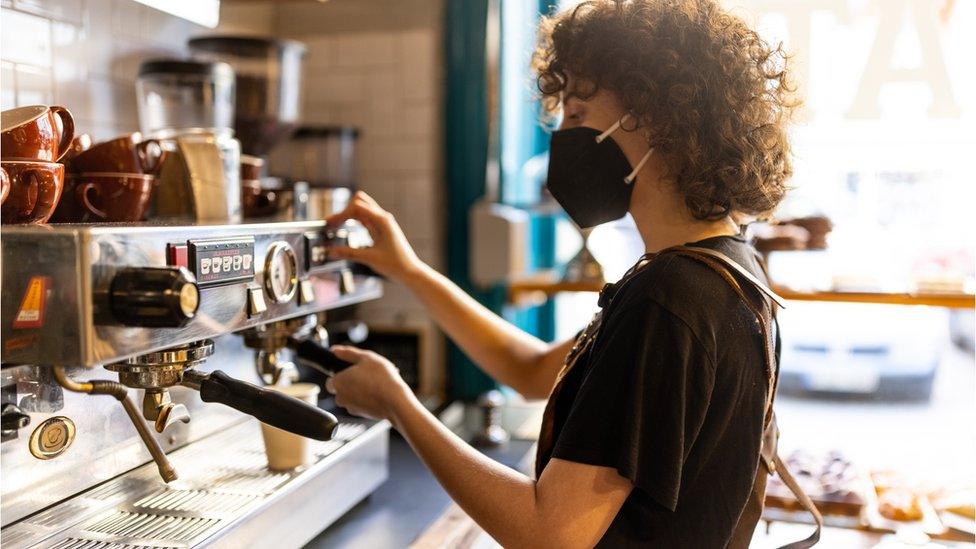Covid-19: NI passport scheme 'divisive and rushed'
- Published
- comments
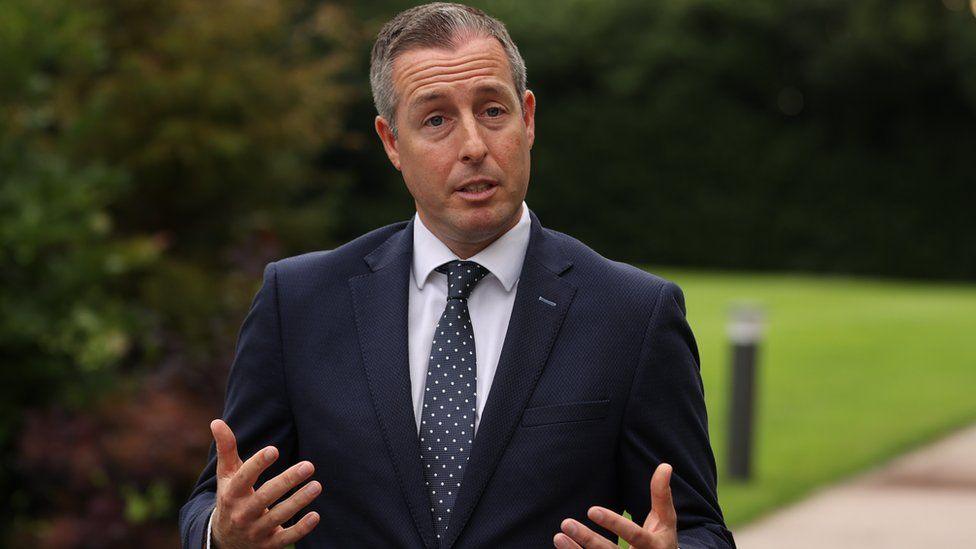
Paul Givan said other Stormont parties should be asked why they voted for a "shambolic" plan
Northern Ireland's First Minister Paul Givan has said NI's Covid-19 certification scheme is "divisive", has been rushed and should not go ahead.
The scheme, which came into effect today, requires people to show proof of vaccination or a negative test to enter some venues and events.
However, there is a two-week grace period before fines are imposed on venues that fail to comply.
The majority of Stormont ministers agreed to the plan on 17 November.
However, Democratic Unionist Party (DUP) ministers voted against it.
Mr Givan called for the other parties to explain why they voted in favour of the "shambolic" plan.
"They need to explain why they voted for something where there wasn't an equality impact assessment, legal opinion there in terms of humans rights implications or economic impact assessments available to other ministers when they voted," he told the BBC's Evening Extra programme.
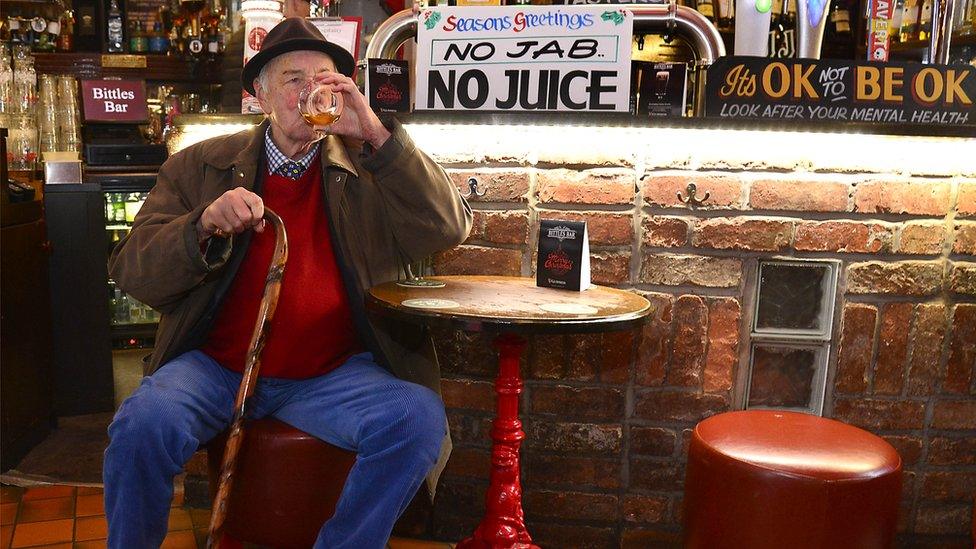
Covid certification is now required at licensed venues
The first minister said a reduction in hospital admissions had been achieved in the past week without the Covid passport.
According to the Department of Health's Covid-19 dashboard there are 340 people in hospital today with coronavirus. Last Monday there were 378 Covid-19 inpatients.
Mr Givan said that similar measures in the Republic of Ireland had not worked and again called for the acceleration of the booster scheme rollout which he described as "the single most effective measure we can take".
Check as soon as practicable
Businesses have said there is a lack of clarity around the scheme and how they should enforce it.
On Friday, Health Minister Robin Swann said unlicensed premises like cafes would be exempt from the rule at this stage.
The Department of Health tweeted on Monday that the regulations had commenced, although they are due to be debated at a later date in the assembly.
Published on Monday afternoon, the regulations said businesses must have a system for checking people "as soon as is reasonably practicable", external when they enter premises.
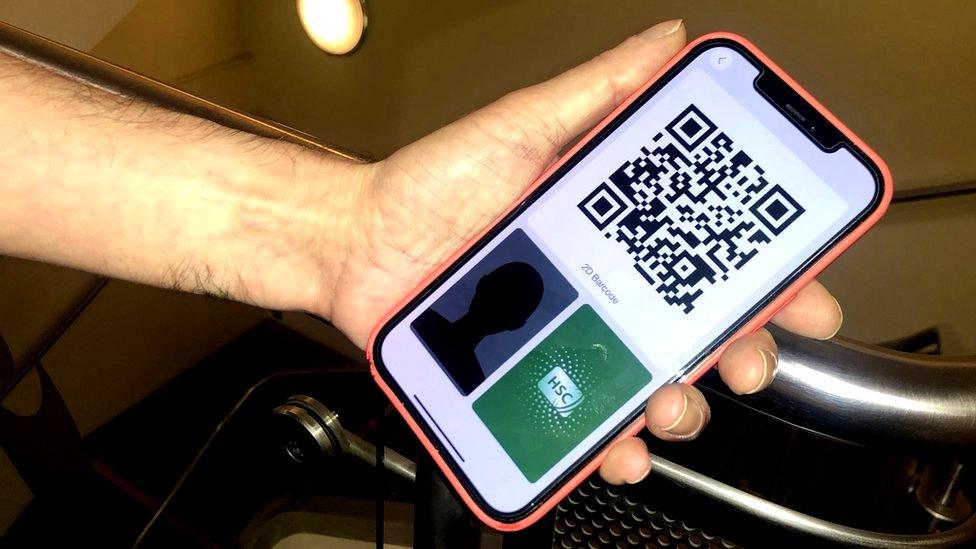
Northern Ireland's domestic Covid certificates have three components, a QR code, a selfie and an HSC logo

From 29 November, either proof of vaccination, a negative lateral flow test or a positive PCR test for access to:
nightclubs
licensed hospitality premises, including 'bring your own' alcohol venues
cinemas, theatres and conference halls
indoor events with 500 or more attendees with some or all of the audience not normally seated
outdoor events with 4,000 or more attendees with some or all of the audience not normally seated
events where more than 10,000 people will be present regardless of whether they are seated

There will be no enforcement until 13 December to allow for the scheme to be "bedded in", the Department of Health said in a statement last week (DoH).
The department said the phased approach followed feedback from the retail, hospitality, tourism and events sectors.
Allow X content?
This article contains content provided by X. We ask for your permission before anything is loaded, as they may be using cookies and other technologies. You may want to read X’s cookie policy, external and privacy policy, external before accepting. To view this content choose ‘accept and continue’.
It said Covid certification can "reduce the number of infected people in high risk settings" as vaccinated people are "less likely to become infected and ill than unvaccinated people".
"There is also evidence, from several studies worldwide, that even when people get infected, if they are vaccinated they are less likely to transmit it to others," it continued.
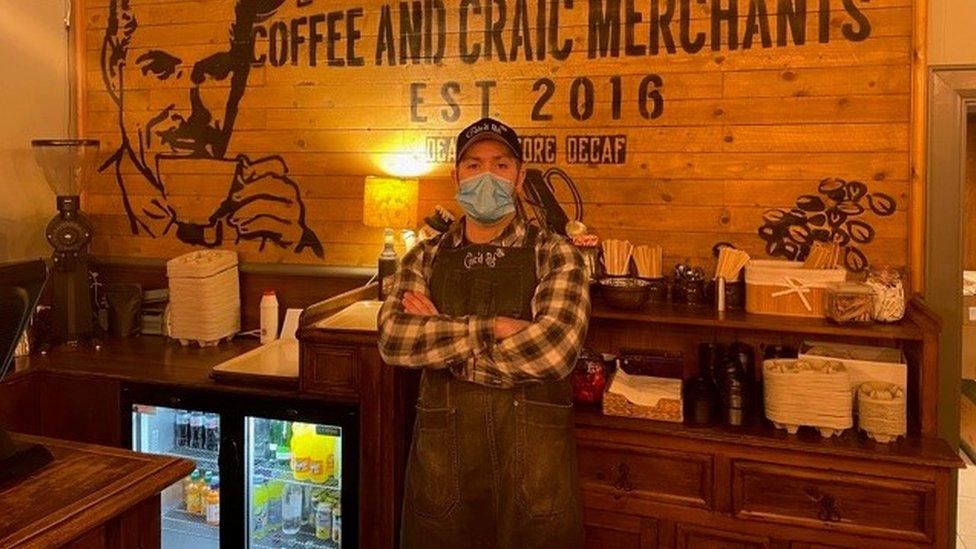
Coffee shop owner Scott King said checking Covid certification at the door could cost his business £120 per day
Coffee shop owner Scott King said he believed it was "inevitable" that businesses like his would soon have to check Covid certification as well.
"It's only a matter of time before [Omicron] comes over here," Mr King told BBC's Good Morning Ulster programme.
"I can see more and more restrictions probably coming in place in the course of the next couple of weeks."
Mr King, who is based in Armagh, said Covid certification checks on entry could cost his business an extra £120 per day.
Michael McAdam, of Movie House cinema chain, said members of the public will be asked for Covid certificates from Monday.
"If you're going to the cinema or going to the theatre tonight, you will be asked, and we're required by law to ask you, what your status is," he said.
"I think it's probably for the better."
Mr McAdam said if it drives up the number getting the Covid vaccination, "it's probably for the better".
'A very difficult time'
Stephen Megarian, the managing director of a Belfast pub chain, said it felt "unfair" that licensed venues had been "put in the front line".
"It's just an added difficulty at a very difficult time," Mr Magorrian told Good Morning Ulster.
He said his business could not afford to face fines for not implementing Covid certification checks.
"We've used up our reserves we had in place already," he said.
"We can't afford to put our licence in jeopardy."
Mr Magorrian said his customers were confused about what was required of them, adding: "We're going to have to be advising and telling them, if they turn up with the wrong stuff, what they need."
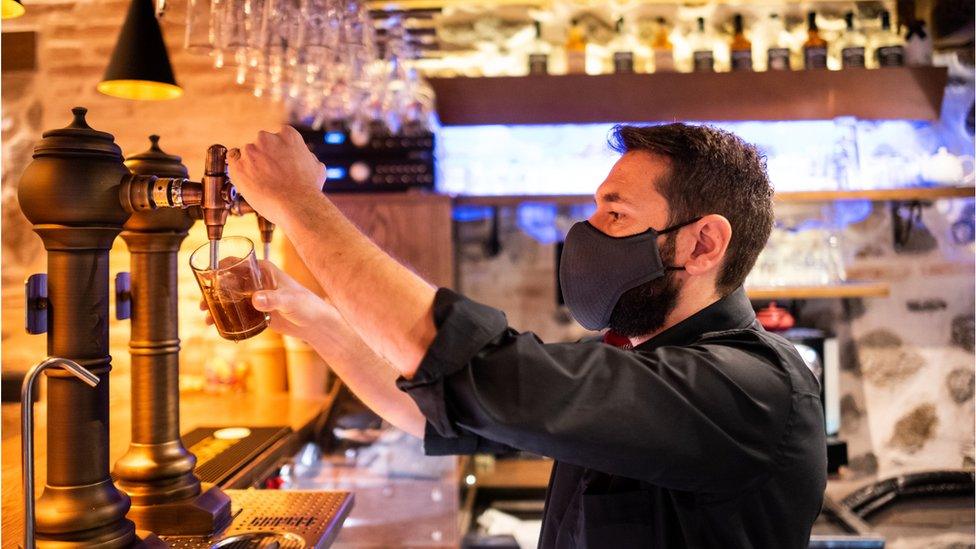
Declan Jordan, manager of a pub and restaurant in Londonderry, said he was frustrated with Stormont's messaging around the Covid vaccine passport.
"I'm very annoyed that they [the NI Executive] are just telling us that we have to start enforcing this today, not legally until another two weeks, but they can't tell us exactly what we have to do.
"We are trying to operate a business and we are trying to stay open, but we may need to take another employee in to just look after the Covid vaccine passport," Mr Jordan told BBC Radio Foyle.
"I am so angry, we just need to know what we have to do so we can put things in place."
Related topics
- Published19 December 2021
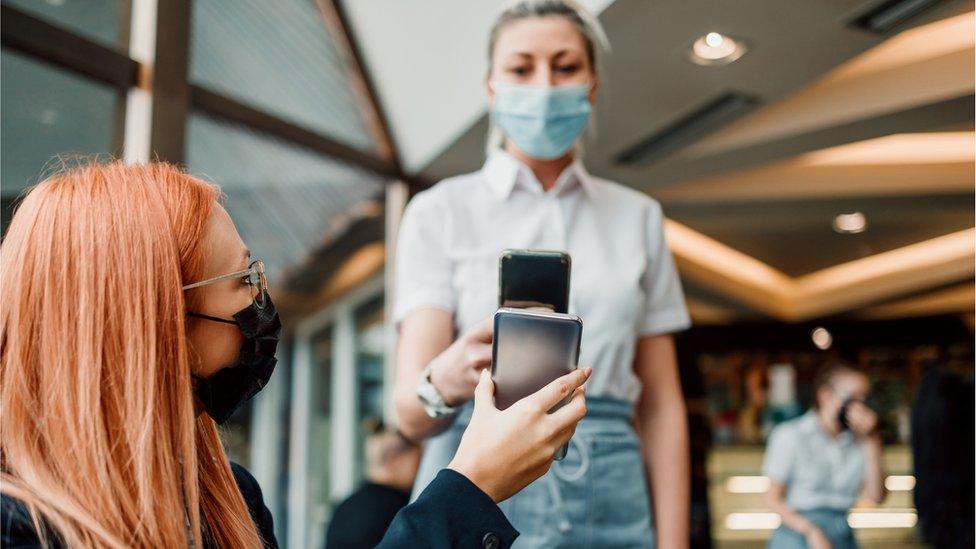
- Published26 November 2021
